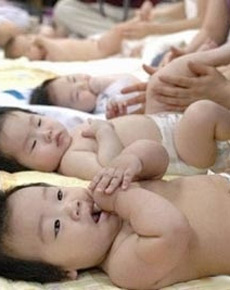fitness news
![]() ,
,![]()
Font size Women’s Health
Fertility business booming in Singapore
– Reported, May 27, 2013
 SOMETIMES, nature needs a little help from science when it comes to making babies. And in Singapore, the number of babies arriving with the aid of technology is burgeoning. One major reason for this rapid growth of the fertility industry here is the growing number of women who leave motherhood too late to conceive naturally. Examples of AR include in-vitro fertilisation (IVF), which entails combining a womans eggs with her husbands sperm in a test tube in a laboratory, then implanting the resulting embryos, or fertilised eggs, back into the womans womb, and intracytoplasmic sperm injection (ICSI), where sperm is injected into the egg to increase the chances of conception. More and more couples here are seeking medical help to conceive and at an older age.
SOMETIMES, nature needs a little help from science when it comes to making babies. And in Singapore, the number of babies arriving with the aid of technology is burgeoning. One major reason for this rapid growth of the fertility industry here is the growing number of women who leave motherhood too late to conceive naturally. Examples of AR include in-vitro fertilisation (IVF), which entails combining a womans eggs with her husbands sperm in a test tube in a laboratory, then implanting the resulting embryos, or fertilised eggs, back into the womans womb, and intracytoplasmic sperm injection (ICSI), where sperm is injected into the egg to increase the chances of conception. More and more couples here are seeking medical help to conceive and at an older age.
Those who seek help are getting older, say some doctors interviewed. For example, at the KK Womens and Childrens Hospital (KKH), the average age of an IVF patient is now 35, up from her late 20s a decade ago. To cater to this growing demand for fertility assistance, there are now 10 AR centres here. The newest kid on the block is the Parkway East IVF centre, which opened in November last year. Doctors say the ever-rising number of women who marry late or delay motherhood to establish their careers is a key reason behind the growing demand for fertility treatments. As a woman ages, her chances of becoming pregnant fall as the number and quality of her eggs decline. There are social reasons for low fertility too. With todays stressful pace of life, long and demanding work hours and frequent work travel, couples hardly have any time to make babies, noted Dr Christopher Chen, director of Gleneagles IVF Centre. And more couples are now aware of the various medical avenues they can seek help to have Junior and they are increasingly open to using such technology.
Government subsidies in recent years have also made these treatments accessible to more people. One cycle of IVF treatment, for example, costs between $8,000 and $11,000 at public hospitals here, while it can go up to $15,000 at private centres. But since August 2008, the Government has subsidised a maximum of $3,000 per cycle of IVF and ICSI treatment, up to three cycles per eligible patient. The treatments must be carried out at a public hospital.
The plight of women struggling to have babies after marrying late prompted the Governments change of heart in subsidising fertility treatment, said former health minister Khaw Boon Wan in 2008. He noted then that the Governments new stance was a departure from its old policy of urging couples to have more babies if you can afford it and the subsidy was part of a series of measures to try to alleviate Singapores great baby drought. Up to December last year, the Government has spent $9.4 million to co-fund AR treatments since it started in August 2008. This has led to an additional 619 babies born.
This is one reason that Singapores largest fertility centre at the KKH has seen a surge in couples seeking help, said Dr Loh Seong Feei, head of its department of reproductive medicine. The number of women seeking IVF or ICSI at the KKH shot up from about 380 in 2000 to about 650 in 2007 before the government subsidy was introduced. Last year, it saw 1,260 women almost double its 2007 figures. To cope with the surge in demand, KKH has increased its manpower, laboratory equipment and consultation rooms.
More fertility specialists are also being trained in Singapore. There are now 46 obstetrics and gynaecology doctors approved by MOH to perform AR procedures here. In March, the Asia-Pacific regions first fertility treatment training centre was launched at National University Hospital (NUH). The Centre for Reproductive Education and Specialist Training (Crest) was set up to meet the need and demand for proper and structured training in a dedicated, stand-alone, purpose-built training facility, said Professor P.C. Wong, head of the NUHs division of Reproductive Endocrinology and Infertility. In developed countries worldwide, infertility is a multimillion-dollar enterprise.
CREDITS.
http://www.healthxchange.com.sg/
For more Singapore news Click Here